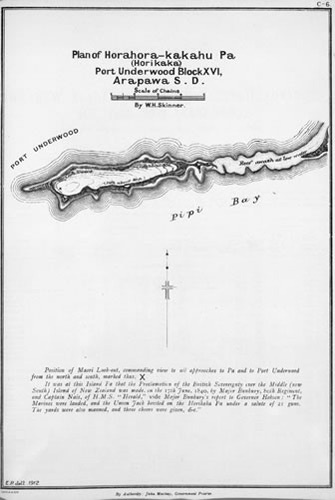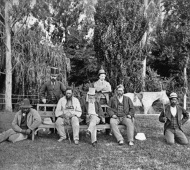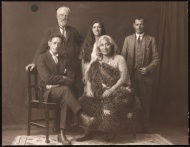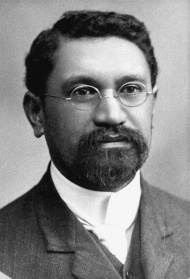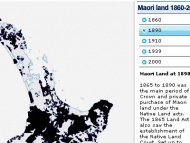Events In History
-
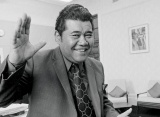 10 October 1975Waitangi Tribunal created
10 October 1975Waitangi Tribunal createdThe Labour government created the Tribunal to hear Māori claims of breaches of the Treaty of Waitangi. It has evolved ever since, adapting to the demands of claimants, government and public. Read more...
Articles
The Treaty in practice
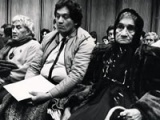
Amalgamating Māori into colonial settler society was a key part of British policy in New Zealand after 1840. Economic and social change, along with land-purchase programmes, were central to this process.
-
Page 8 – The Waikato-Tainui claim
The Waikato-Tainui people and the Crown signed a Deed of Settlement in 1995. It included a formal apology for Crown actions in the wars of the 1860s that had brought
The 1920s

The 1920s was the decade that modern New Zealand came of age. Despite political and economic uncertainty, the country shrugged off the gloom of war to embrace the Jazz Age - an era of speed, power and glamour. Explore an overview of the decade and a year-by-year breakdown of key events.
- Page 10 - 1927 - key eventsA selection of key New Zealand events from
Biographies
-
Māngakahia, Hāmiora
Coromandel chief, Hāmiora Mangakāhia, was elected Premier of the Kotahitanga (Māori) Parliament in 1892. He petitioned for the abolition of colonial laws relating to Māori land, and asked that Māori be allowed to control their own affairs.
Read more... -
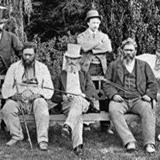 Matua, Hēnare
Matua, Hēnare
Ngāti Kahungunu chief Hēnare Matua was leader of the repudiation movement, which questioned land sales that it believed had been undertaken fraudulently.
Read more... -
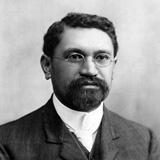 Ngāpua, Hōne Heke
Ngāpua, Hōne Heke
Hōne Heke Ngāpua was elected to Parliament in 1893 and represented the people of Northern Māori almost continuously until his death in 1909.
Read more... -
 Heremaia, Niniwa
Heremaia, Niniwa
Through her battles in the Native Land Court, her abilities as a speaker, and her knowledge of whakapapa and tradition, Niniwa Heremaia qualified as a leader of Wairarapa Māori.
Read more... -
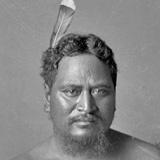 Nireaha Tāmaki
Nireaha Tāmaki
Nireaha Tāmaki, of Rangitāne and Ngāti Kahungunu, is perhaps best known for his bitter struggle to retain lands within the large Mangatainoka block, which the government was determined to purchase for railway construction.
Read more... -
 Cooper, Whina
Cooper, Whina
Te Rārawa leader and woman of mana Dame Whina Cooper spent her whole life fighting for Māori land rights. As a 79-year old she led Māori land protest marchers as they walked from Te Hāpua (in the far north) to Parliament, arriving on 13 October 1975.
Read more... -
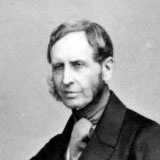 FitzRoy, Robert
FitzRoy, Robert
Robert FitzRoy, who first visited New Zealand as commander of the Beagle in 1835, was Governor from 1843, succeeding the late William Hobson. He served until 1845, when he was recalled to Britain and replaced by George Grey.
Read more... -
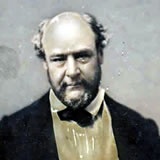 Spain, William
Spain, William
William Spain was a land commissioner who investigated the New Zealand Company's claims that it had purchased 20 million acres in 1839. The claims were not settled until several years after Spain's death
Read more...
Related keywords
- ngati whanaunga
- kotahitanga
- hamiora mangakahia
- maori leaders
- maori pa
- new zealand wars
- ngati kahungunu
- henare matua
- henry russell
- kingitanga
- niniwa heremaia
- papawai
- polynesian society
- protest
- hikoi
- ngati poneke
- 1970s
- treaty of waitangi
- ngapuhi
- Maori MPs
- MPs
- hone heke ngapua
- rangitane
- nireaha tamaki
- new zealand company
- william spain
- george clarke
- voting
- art
- daylight saving
- 1920s
- te reo māori
- governor
- wairau incident
- robert fitzroy
- whina cooper
- law
- maori
- waitangi tribunal
- famous firsts
- tainui
- waikato
- treaty of waikato
- ngai tahu
- matiaha tiramorehu
- maori land
- land confiscation
- maori land court
- te rarawa
-
Main image: Horahora pa reserve plan
Horahora Kakahu was an early historic reserve.

